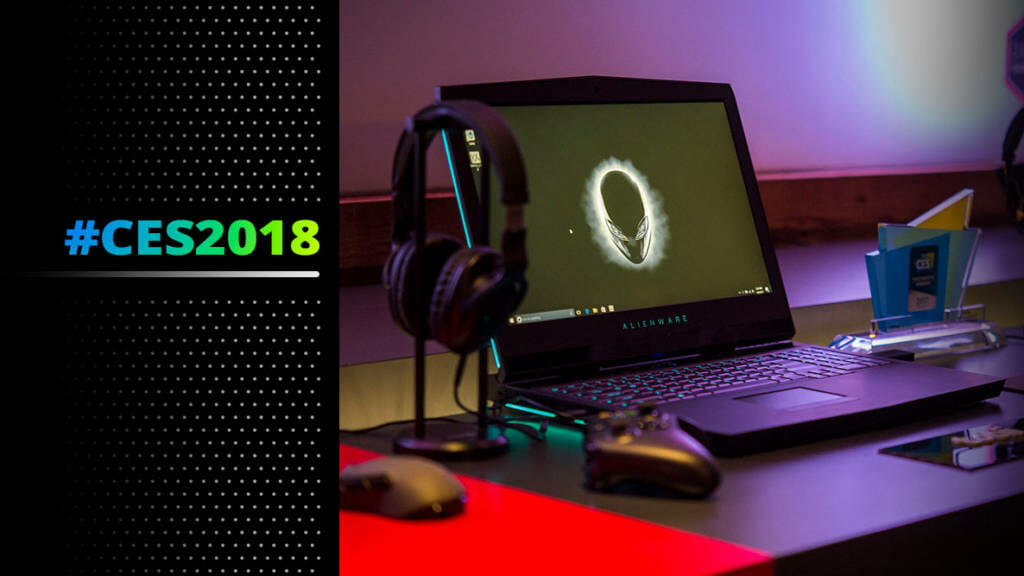Dell made two gaming announcements at CES this year, including a virtual reality-capable Inspiron Gaming desktop that the company hopes will drive growth for VR adoption, which speaks to Dell’s goal of reaching gamers ranging from casual players, to hardcore enthusiasts and aspiring esports competitors.
Speaking with AListDaily, Frank Azor, vice president and general manager of Alienware, gaming and XPS at Dell, said that the company doesn’t distinguish between casual or hardcore gamers, instead letting the players decide their designations for themselves.
The all inclusive approach is working out, as the gaming division’s revenues are up 63 percent year-over-year in its 12 focus countries, which include North America, UK, Germany, China and Japan.
Upgrading Esports Sponsorships
Last year, Alienware partnered with ELeague to integrate Tobii Eye Tracking technology into Counter-Strike tournaments, which Azor hopes will be as disruptive as instant replay was to traditional sports.
The company also hosts the Alienware League in China, which is a minor leagues esports tournament, open to the public, that acts as a test bed for recruiting aspiring pro players. The brand also announced at CES that it’s heightening its relationship with Team Liquid by launching two Alienware esports training centers—one in Los Angeles and the other in the Netherlands. Azor said that no other large corporation has done this with an esports franchise before.
These centers are inspired by traditional sports programs, and they represent a new kind of relationship between sponsor and team. Usually, team owners—some from traditional sports backgrounds—are the ones responsible for launching training centers to help their teams compete. Although a company might sponsor an existing training house with branding, equipment and technology, this is the first time a sponsor has decided build training facilities from the ground up in partnership with a team it doesn’t own.
Pro esports players will have access to coaches, nutritionists and the best gaming equipment Alienware offers. But what fully sets this sponsorship apart from others is that use of its products is completely voluntary.
Azor said that requiring teams to adapt to new mice and keyboards for the sake of a sponsorship is as a major point of frustration for esports teams. Instead, Team Liquid chose to play using Alienware’s hardware, and became one of the first pro teams to feature the brand’s gaming peripherals. The company is also including Team Liquid in its product design process and is building an esports advisory council that will participate in the company’s three-year roadmap planning for all its products.
“We think this should be the formula that all esports teams should be looking at,” said Azor. “That level of integration—of genuine collaboration—is disruptive and unique.”
Although typical esports sponsorship practices, such as exchanging dollars, assets and brands will continue, Alienware is looking to expand the industry by further professionalizing it using these facilities for training and recruitment.
“I don’t think anyone has cracked the formula for a successful corporate and esports partnership, but we’re hoping this will be it,” Azor explained. “If it isn’t, then we’ll try something new.”
Dell’s Campaign Message: ‘Everyone Is A Gamer’
But even with its expansive esports initiatives, Azor asserts that the core of the Dell Gaming brands is to appeal to all types gamers, and part of that strategy is in having fun.
“We’re not trying to go to the moon here; we’re building fancy toys,” Azor explained. “Not every campaign has to be serious, but we try to experiment with things—to be innovative and help partners out.”
The brand launched a series of light-hearted video campaigns last fall featuring celebrities and influencers, including pro wrestler Xavier Woods, Team Dignitas, Nerdist host Jessica Chobot and Twitch broadcaster Grandpa Gaming, who is a retiree and avid gamer. Alienware chose to spotlight Grandpa Gamer as he’s the least famous of the four.
“What we’ve done is create more awareness of him, and his Twitch stream membership has gone up as a result,” said Azor. “I think we’ve also helped legitimize that gaming isn’t one specific demographic nowadays. We’ve seen female gamers skyrocket over the past ten years, and we’ve seen gaming grow up in a lot of ways.”
Azor added, not jokingly, that he wouldn’t be surprised if esports centers were someday built at retirement communities. They wouldn’t compete at the level of 18-year-olds, but he’s certain that the gamers of today will still want to game when they’re retired and have more time on their hands.
“I’m hoping that the campaign will be looked at for what it is, which is that everyone is a gamer,” he continued. “It doesn’t matter how old you are, it doesn’t matter what gender you are, or any of that stuff. The feedback that we’ve seen is that people who get what we’re doing and know who Grandpa Gaming is have been fans of that campaign and of us giving him a stage.”
Azor predicts that 2018 may become milestone year for PC gaming, as computer hardware becomes more powerful and affordable, and more companies take gamers seriously as a demographic to market to. The increased competition means that having a trusted brand will become even more important.

